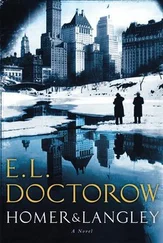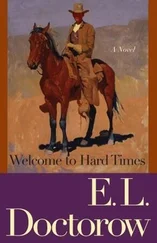But you didn’t, she says.
One night when the dogs are in the neighborhood he takes two wineglasses and a bottle of his table red and closes his door and half walks half runs over to her cottage.
I thought you might need some company, he says.
He follows her inside. She wears a robe. She is barefoot. He realizes she answered the door without breaking stride. She is pacing the room. Her arms are folded across her breasts.
The doors to her terrace are closed and locked. The curtain is pulled shut. The room smells of cigarettes. He pours the wine.
Later they are sitting on the floor beside the bed. He has been telling her about his life. He has recited some of his work. She has listened and smoked and held out her glass for wine.
Listen, he says holding his hand up, forefinger pointed. The dogs are gone. She smiles and accepts this as something he’s done. Sitting Indian style, she leans forward and touches his face. Her robe has fallen open over her thighs like a curtain rising. He kisses her hand as it is withdrawn. I’ve loved three times in my life, he says. Always the same person.
I don’t know what that’s supposed to mean, she says. But I see I’ve got a live one here.
Then she is lying on the floor in his arms reading his face with judicious solemnity, her eyes gathering up the dim light of the room so widely open that he feels himself pouring into them. Because her spirit is strong he is surprised by the frailty of her. She is a small person. Her breasts are full and her thighs rather short. He can feel her ribs. Her buttocks are hard with a thin layer of sweet softness over them, like a child’s ass. Her mons hair feels lightly oiled. He touches her cunt. She closes her eyes. A queer bitter smell comes off her body. He kisses her soft open mouth and it’s just as he knew, she is here and he’s found her again.
Like many large overweight men he has surprising agility. She is obviously entranced. But the lack of practice is too much for him.
She says with characteristic directness: Is that the whole show?
He laughs and one way or another maintains her interest. Eventually he is ready again. Later he will try to remember the experience of being in her and will find that difficult. But he’ll remember them lying on their backs next to each other and the feel of the hard nap of the carpet on his sweaty skin. He’ll remember that when he turned on his side to look at her the silhouette of her body in the dark was like a range of distant hills.
Yes, she said, as if their fucking had been conversation, sometimes nothing else will do but to drive as flat out hard and fast as you can.
Annotated text Loon Lake by Warren Penfield.
If you listen the small splash is beaver.
As beaver swim their fur lies back and their heads elongate
and a true imperial cruelty shines from their eyes.
They’re rodents, after all.
Beaver otter weasel mink and rat
a rodent specie of the Adirondacks
and they redistrict the world.
They go after the young trees and bring them down—
whole hillsides collapse in the lake when they’re through.
They make their lodges of skinned poles, mud and boughs
like igloos of dark wet wood
and they enter and exit under water and build shelves
out of the water for the babies.
And when the mahogany speedboat goes by
trimmed with silver horns
in Loon Lake, in the Adirondacks,
the waves of the lake inside the beaver lodge lap gently
against the children’s feet in the darkness.
Loon Lake
was once the destination of private railroad cars
rocking on a single track
through forests of pine and spruce and hemlock
branches and fronds brushing the windows of cut glass
while inside incandescent bulbs flickered
in frosted-glass chimneys over double beds
and liquor bottles trembled in their recessed cabinet fittings
above card tables of green baize
in rooms entered through narrow doors with brass latches.
If you step on a twig in a soft bed of pine needles
under an ancient stand of this wilderness
you will make no sound.
All due respect to the Indians of Loon Lake
the Adirondack nations, with all due respect.
What a clear cold life it must have been.
Everyone knew where he stood
chiefs or children or malcontents
and every village had its lover whom no one wanted
who sometimes lay down because of that
with a last self-pitying look at Loon Lake
before intoning his death prayers
and beginning the difficult business of dying by will
on the dry hummocks of pine needles.
The loons they heard were the loons we hear today,
cries to distract the dying
loons diving into the cold black lake
and diving back out again in a whorl of clinging water
clinging like importuning spirits
fingers shattering in spray
feeling up the wing along the rounded body of the
thrillingly exerting loon
taking a fish
rising to the moon streamlined
its loon eyes round and red.
A doomed Indian would hear them at night in their diving
and hear their cry not as triumph or as rage
or the insane compatibility with the earth
attributed to birds of prey
but in protest against falling
of having to fall into that black water
and struggle up from it again and again
the water kissing and pawing and whispering
the most horrible promises
the awful presumptuousness of the water
squeezing the eyes out of the head
floating the lungs out on the beak which clamps on them
like wriggling fish
extruding all organs and waste matter
turning the bird inside out
which the Indian sees is what death is
the environment exchanging itself for the being.
And there are stars where that happens too in space
in the black space some railroad journeys above the Adirondacks.
Well, anyway, in the summer of 1936
a chilling summer high in the Eastern mountains
a group of people arrived at a rich man’s camp
in his private railway car
the men in fedoras and dark double-breasted suits
and the women in silver fox and cloche hats
sheer stockings of Japanese silk
and dresses that clung to them in the mountain air.
They shivered from the station to the camp
in an open carriage drawn by two horses.
It was the clearest night in the heavens
and the silhouettes of the jagged pines on the mountaintop
in the moonlight looked like arrowheads
looked like the graves of heroic Indians.
The old man who was their host
an industrialist of enormous wealth
over the years had welcomed to his camp
financiers politicians screen stars
European princes boxing champions and
conductors of major orchestras
all of whom were honored to sign the guest book.
Occasionally for complicated reasons
he received persons strangely undistinguished.
His camp was a long log building of two stories
on a hill overlooking Loon Lake.
There was a great rustic entrance hall
with a wide staircase of halved logs
and a balustrade made of scraped saplings
a living room as large as a hotel lobby
with walls papered in birch bark
and hung with the mounted heads of deer and elk
and with modern leather sofas with rounded corners
and a great warming fireplace of native stone
big enough to roast an ox.
It was a fine manor house lacking nothing
with suites of bedrooms each with its own shade porch
and the most discreet staff of cooks and maids and porters
but designated a camp because its décor was rough-hewn.
Читать дальше











